A very incomplete list of my coding projects.. See my GitHub page for even more projects.
TrackerControl (2019–)
TrackerControl is an Android app to restrict tracking on smartphones. Tracking means collection of data about app usage. This includes the times when you start and close an app, and what buttons you click.

My colleagues at Oxford found that 90% of apps can share data with Google, and 40% with Facebook.
Pretty scary, but does it surprise you? Give the app a try, if you want to learn if you’re being tracked, too. (Spoiler: Yes)
Global Privacy Control for Mobile (2022–)
The Global Privacy Control (GPC) promises to make the opt-out from internet surveillance easy: by just making a single change in your browser settings. Backed by Californian privacy law, GPC is currently being adapted widely across the web. So far, there exist only limited similar solutions for mobile, especially for Android. This is because Google’s business model relies heavily on tracking individuals on their Android devices — while Google also is the main developer of Android. Hence, I — and other researchers — are currently working on creative solutions to address this gap. Feel free to reach out, if you’re interested!
Code and Discussion: https://github.com/kasnder/gpc_android/
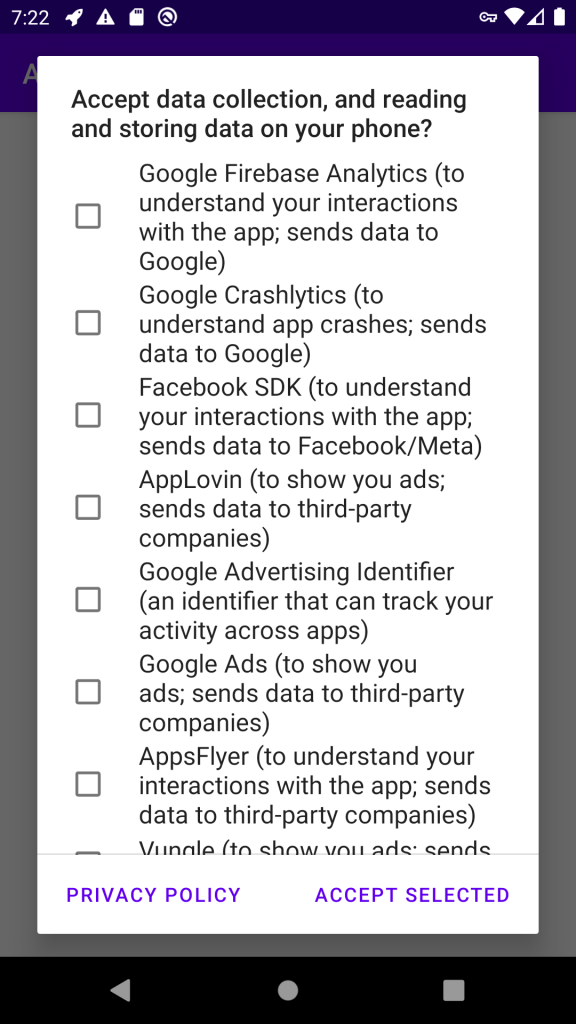
auto-app-consent (2022–)
Many app developers struggle with regulatory compliance. But is it really that hard? That’s what I’ve set out to change with a simple tool for app developers to help them with compliance.
More here: https://github.com/kasnder/auto-app-consent
Article: https://policyreview.info/articles/news/gdpr-compliance-privacy-issues-mobile-apps/1678
PlatformControl (2020–)
PlatformControl provides a toolchain for the large-scale analysis of the privacy properties of Android and iOS apps.
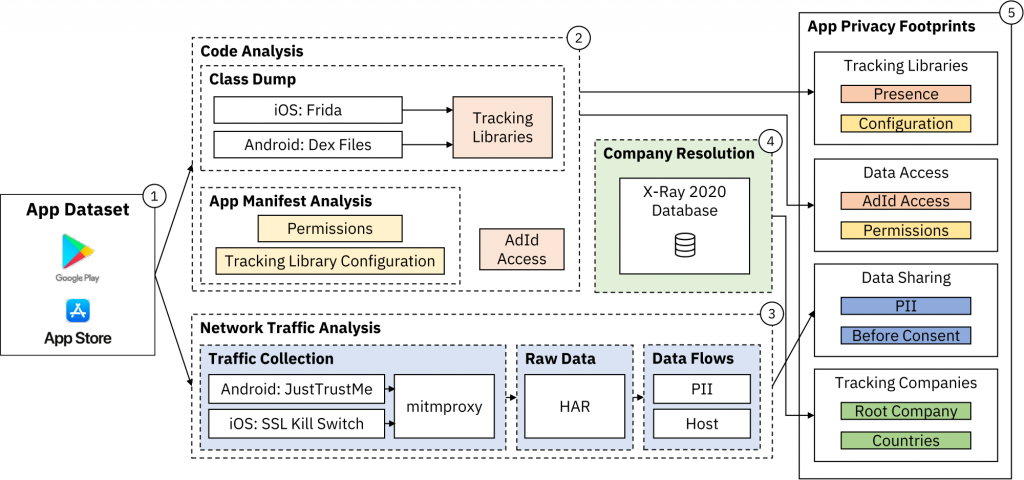
This toolchain forms the core of the contributions of my PhD research at Oxford, and has been the foundation for 4 academic publications so far (since 2021).
You can find the tool here.
GreaseDroid (2021–)
GreaseDroid aims to give end-users more choice about the technology they rely on.

The idea is to create a community of patch developers that write instructions that describe how to modify certain app features. In turn, end-users – even those with limited expertise – can choose what modifications they would like to make to their apps.
At the moment, GreaseDroid allows users to block apps’ access to personal information, as well as remove distracting elements from the Twitter app.
This work has been published as an LBW at CHI2021, together with Siddhartha Datta and Max Van Kleek, and been covered surprisingly widely in the press.
Previous Projects
AIReg.net (2022)
The AIReg.net blog provided weekly articles by thought leaders in AI regulation.

The roots of this project lie somewhere between London, Oxford and Venice. In March 2022, members of the University of Oxford and Goodenough College met in Venice to discuss their ideas about the regulation of AI.
gdpr4devs.com (2019–2020)
You’ve probably heard of the EU General Data Protection Regulation (GDPR). But, would you know what it means? Presumably something with data protection, ha?
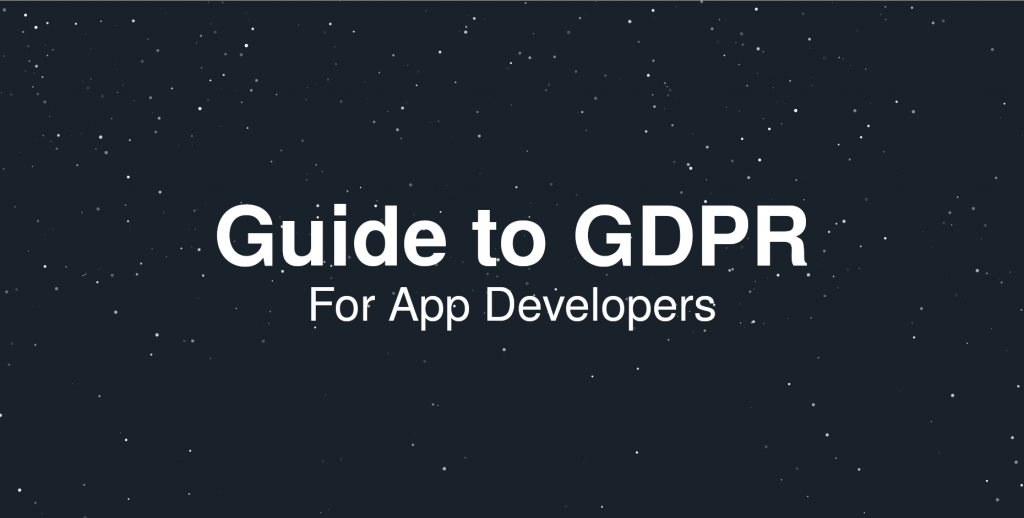
Software developers have to apply this law to their software. But, the thing is highly complex and ambiguous. This is why I tried to summarised the essentials of GDPR for app developers. If you’re one of them, check it out!
IdentiSwap (2018–2019)
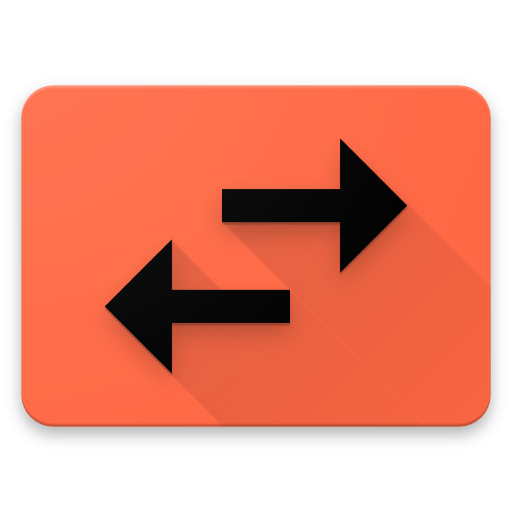
Ever felt like exploring a different identity? Well, then IdentiSwap might be something for you. If not, why not try?
IdentiSwap is a browser extension that allows you to see what a first-time visitor on YouTube would see for their next-up recommendations. That’s the stuff on the right hand side, when playing a video.
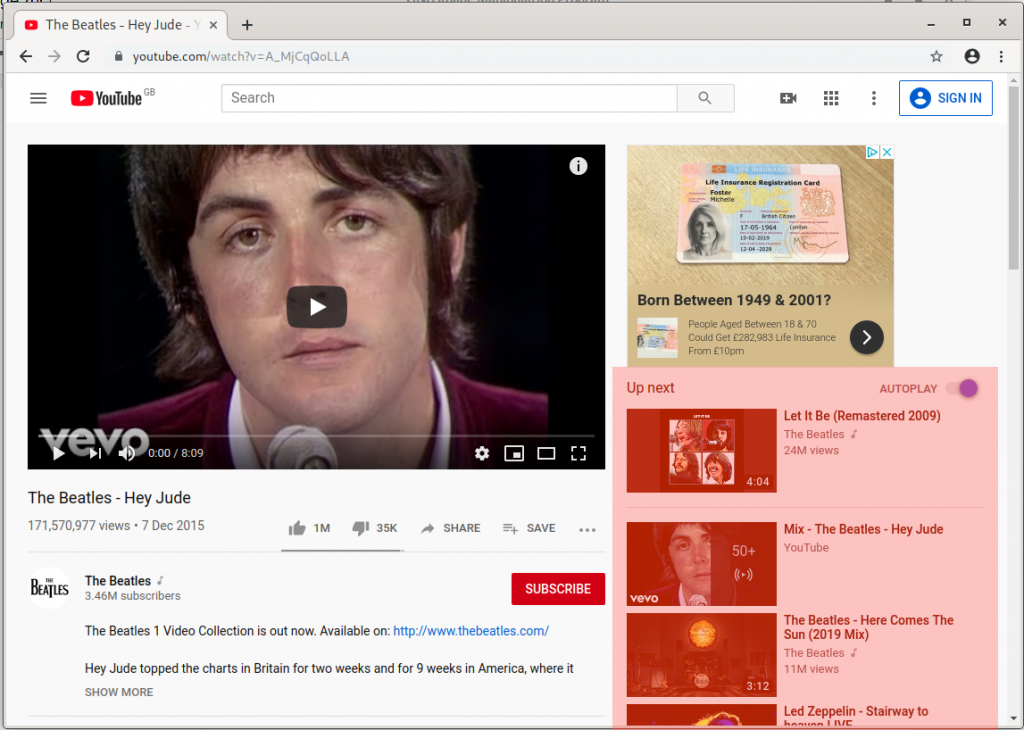
It’s been speculated that these recommendations have brought Trump into office because they drive you to ever more extreme, sensational content. Remember videos watched spent means ads served for YouTube. A coincidence?
